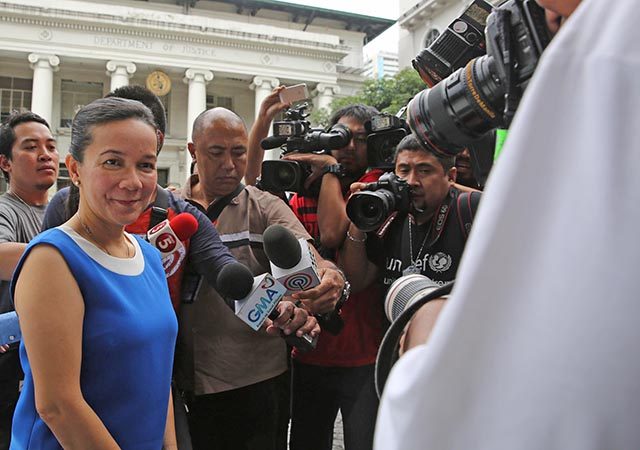SUMMARY
This is AI generated summarization, which may have errors. For context, always refer to the full article.

Lawyers are officers of the court, not that they are public servants. Rather, the nature of their profession is to be at the service of the court when it discharges its mandate of resolving disputes.
Lawyers are usually reticent about commenting on court decisions, especially those of the Supreme Court. Many a lawyer has been stricken off the roll of attorneys for misbehavior, by the High Court.
A few days ago, however, the Board of Governors of the Integrated Bar of the Philippines released a statement on the controversial Grace Poe decision of the Supreme Court.
The IBP’s clarification is important. It is of course not part of the decision. It is the considered opinion of the leadership of the IBP, a mandatory association of the nation’s lawyers, but it is a necessary and helpful piece. And it should help the Filipino see how complicated – messy, even – things have become as a result of that decision.
In effect, the IBP tells us that it was a question of numbers. The Comelec had ordered the cancellation of Grace Poe’s certificate of candidacy. This, the Supreme Court overturned. The end result is that Grace Poe may run – as she is indeed making a frenetic dash – for the office of president.
But when the petitioners against Grace Poe brought action against her at the Comelec it was because, they alleged, her certificate of candidacy contained material misrepresentations, particularly having to do with her nationality and her residence which, for purposes of complying with constitutional requirements, means “domicile.” The petitioners alleged two things: first, she was not a natural-born Filipino citizen; second, she did not meet the requirement of residence. On these two issues, the Court’s decision had no ruling. It did not have the numbers to resolve the issues with definitiveness.
This happened before. When President Ferdinand Marcos referred the 1973 Constitution to the Citizens’ Assemblies, rather than submitting it to a plebiscite, the question was raised whether or not the Constitution had been validly ratified. The Court had no answer to this question, because it did not have the numbers to lay down the ruling. This resulted in the now-famous pronouncement: There is no more legal obstacle to entry into force of the Constitution.
It also happened in respect to the Court’s decision on the Indigenous Peoples Rights Act. Some thought the concessions to indigenous peoples unconstitutional, and they asked the Court to strike down the law. The Court was evenly split – no doctrine was laid down, but that also meant that there was no mere judicial obstacle to the enforcement of the law.
Future case?
But there is something more ominous in respect to the case of Grace Poe, because if the issues of nationality and residence have not been definitively resolved – as the IBP statement usefully points out — then these can be raised, should she be elected, in a proper action before the Presidential Electoral Tribunal in appropriate proceedings, presumably, quo warranto.
There is something very strange here. If the Court arrived at an agreement – insofar as numbers go – that the Comelec had gravely abused its discretion in disqualifying Poe, but could not agree on the issue of her nationality and residence – the very grounds for disqualification – what then was the basis for the finding of “grave abuse of discretion”?

It will be remembered that that magical phrase – “grave abuse of discretion” – has a determinate meaning: not mistake, not error, not even abuse of discretion, but abuse so wanton, so glaring, so whimsical, so despotic as to amount to a perversion of fair play and due process!
The following then is a summary of the Court’s position — as interpreted by the IBP: Go ahead, Ms. Poe, run for the presidency. Should you get elected, we will listen once more to the arguments for and against your disqualification on the grounds of nationality and residence. Then, we shall decide whether or not you are qualified.
If that is so, that is one compelling reason for not voting her to office: the distinct possibility that we shall be electing one to the highest office of the land who is not qualified to hold office! – Rappler.com
The author is Dean, Graduate School of Law, San Beda College
Add a comment
How does this make you feel?
There are no comments yet. Add your comment to start the conversation.